From the Prophet Isaiah:
Therefore the Sovereign, the Lord of hosts,
will send wasting sickness among his stout warriors,
and under his glory a burning will be kindled,
like the burning of fire.
The light of Israel will become a fire,
and his Holy One a flame;
and it will burn and devour
his thorns and briers in one day.
The glory of his forest and his fruitful land
the Lord will destroy, both soul and body,
and it will be as when an invalid wastes away.
The remnant of the trees of his forest will be so few
that a child can write them down.
(From the Daily Office Lectionary – Isaiah 10:16-19 (NRSV) – December 21, 2012.)
 The world was supposed to end today. I slept in in hopes it would be gone before I got out of bed . . . but alas, it is still here and there are still laundry to be done and a dog who needs a bath and Christmas meals to be shopped for and sermons to be written.
The world was supposed to end today. I slept in in hopes it would be gone before I got out of bed . . . but alas, it is still here and there are still laundry to be done and a dog who needs a bath and Christmas meals to be shopped for and sermons to be written.
I jest, of course. I didn’t really think the world would end. I had no faith in doomsday predictions based on a misunderstanding of the Mayan long calendar, any more than I believe the world will be destroyed by a collision with the invisible planet Nibiru. But having said that, I’m left open to this big, gaping question: Why, then, do I believe Isaiah? It’s a legitimate question – why believe one prophecy and not another?
The answer really boils down to what we mean by “prophecy”. The Mayan “prophecy” really wasn’t a prophecy at all, just the end of a calendar. The Mayans divided time into eras called “baktuns”. Based solely on mathematics and observation of the movement of celestial bodies, the so-called “long calendar” laid out the calculations for the length of the 13th Baktun, which ended today. The long calendar doesn’t say, in any way, that creation would also end; the rational implication of the long calendar is that the 14th Baktun would begin, but that’s not the way the nuttier folk among us took it.
The Nibiru “prophecy” is based on even less observable reality than the Mayan long calendar. It comes from the tortured and demonstrably inaccurate translations of ancient Babylonian and Sumerian texts by one Zecharia Sitchin, a proponent of the idea of “ancient astronauts”. The idea is that there is an invisible planet called “Nibiru” which circles through our solar system every 3,600 years and will eventually collide with Earth. The date of the collision has been recalculated and changed on several occasions.
This is what differentiates the Hebrew prophecies like Isaiah’s from the Mayan, Nibiru, and similar prophecies. The former are not based on mathematical calculations; the latter are. The former give voice to a moral sense of history; the latter give voice to a mechanistic model of the universe.
Isaiah and the other Hebrew prophets were not simply, nor even primarily, predicters of the future; they were historians, moralists, social critics, spokesmen for God. In general, one can outline a Hebrew prophet’s pronouncement sort of like this:
(a) In the past the People of God or their leaders or their enemies behaved in this manner.
(b) God responded to this behavior in this way. From this we know that . . .
(c) if the People of God or their leaders or their enemies continue to act as they currently are . . .
(d) then God will respond to this behavior in a similar way. On the other hand . . .
(e) if the People of God or their leaders or their enemies change their behavior . . .
(f) then God will change God’s mind and respond differently.
In other words, the prophecies of the Hebrew seers are conditional upon the moral behavior of human beings and a belief that the Creator of the universe also behaves in a moral way. I’ve heard it said that the role of a Hebrew prophet is not “foretelling” (predicting the future) but “forth telling” (speaking the word of God to God’s People in their time and place).
The Mayan calendar and the Nibiru prophecy are amoral; they simply assert that heavenly bodies (real or imagined) behave in certain ways and will continue to do so without regard to human or divine behavior. If they predict disaster (and it is by no means clear that they do – obviously the Mayan calendar did not), there is nothing anybody can do about it. And knowing about it offers us no moral guidance.The prophecies of Isaiah and other Hebrew prophets, on the other hand, are of a different sort. They provide us the same guidance they provided their original audiences: “God has dealt thusly with God’s People in the past; we can expect God to deal similarly with us; how, then, should we act?” Our specific reading today, a part of a pronouncement against the king of Assyria and in consolation to the People of Israel, is a reminder of the corrupting influence of political power and the dangers of political arrogance, a lesson we and our own leaders should often remember.
From the Mayan long calender we learn nothing of moral guidance; from the Nibiru prophecy we learn nothing except that poor scholarship produces ridiculous nonsense; from the prophecy of Isaiah, however, we learn that human political authority has its limits. This is why I trust in the prophecies of the Hebrew prophets, but not predictions of “the Mayan apocalypse.”
On the First Sunday of Advent this year, the Gospel lesson at the Holy Eucharist (Luke 21:25-36) included Jesus’ warning that before the end of time there would be “distress among nations” and that “people will faint from fear and foreboding.” These are much more important than “signs in the sun, the moon, and the stars,” though there may be those, as well. As Advent ends, let us pray for less distress, less fear, less foreboding, less political arrogance, less corruption . . . and let us give thanks that the world didn’t end today, even though we didn’t really think it would.
====================
A request to my readers: I’m trying to build the readership of this blog and I’d very much appreciate your help in doing so. If you find something here that is of value, please share it with others. If you are on Facebook, “like” the posts on your page so others can see them. If you are following me on Twitter, please “retweet” the notices of these meditations. If you have a blog of your own, please include mine in your links (a favor I will gladly reciprocate). Many thanks!
====================
Father Funston is the rector of St. Paul’s Episcopal Church, Medina, Ohio.
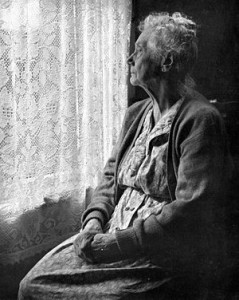 The first word of this bit of Isaiah in Hebrew is often translated “Woe” but here in the New Revised Standard Version, it has been rendered “Ah”. The Hebrew is hôy ; it is a negative exclamation pronounced “oy!” Perhaps the “woe” translation is better. However, the construction “woe to you . . . . ” has taken on an oracular connotation to modern ears and that is not what the prophet is saying here. He will later make prediction about these oppressors, but for now he is simply making an indictment.
The first word of this bit of Isaiah in Hebrew is often translated “Woe” but here in the New Revised Standard Version, it has been rendered “Ah”. The Hebrew is hôy ; it is a negative exclamation pronounced “oy!” Perhaps the “woe” translation is better. However, the construction “woe to you . . . . ” has taken on an oracular connotation to modern ears and that is not what the prophet is saying here. He will later make prediction about these oppressors, but for now he is simply making an indictment. 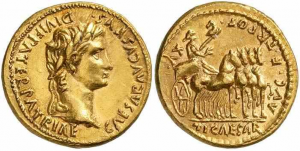 I absolutely adore Handel’s Messiah. As a child in a non-church-going family (except during the summers when I lived with my Methodist grandparents), my introduction to these words from the Prophet Isaiah was through Handel’s music. My step-father, who had sung in high school choirs, would take me with him to community sing-alongs of the oratorio which churches in our area would offer during the Christmas holidays. Even now as I read these lines from Isaiah, I read them to music of Handel!
I absolutely adore Handel’s Messiah. As a child in a non-church-going family (except during the summers when I lived with my Methodist grandparents), my introduction to these words from the Prophet Isaiah was through Handel’s music. My step-father, who had sung in high school choirs, would take me with him to community sing-alongs of the oratorio which churches in our area would offer during the Christmas holidays. Even now as I read these lines from Isaiah, I read them to music of Handel! 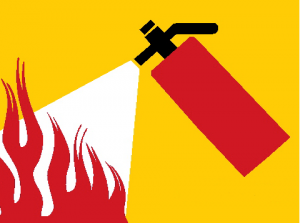 We are all, every American, still reeling from and trying to comprehend a tragedy. Twenty First Grade children, most age 6, and six teachers and school administrators were gunned down at an elementary school in Connecticut on Friday. There is not a person in this country, probably not a person in the world, who has not uttered some variation on “Father, if you are willing remove this cup . . . .” in the past 72 hours.
We are all, every American, still reeling from and trying to comprehend a tragedy. Twenty First Grade children, most age 6, and six teachers and school administrators were gunned down at an elementary school in Connecticut on Friday. There is not a person in this country, probably not a person in the world, who has not uttered some variation on “Father, if you are willing remove this cup . . . .” in the past 72 hours. 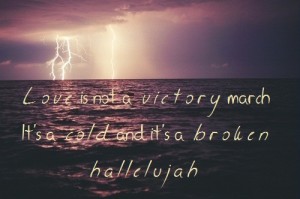 Did you pay attention to the words of the song we just sang as our sequence hymn? Listen to them again:
Did you pay attention to the words of the song we just sang as our sequence hymn? Listen to them again: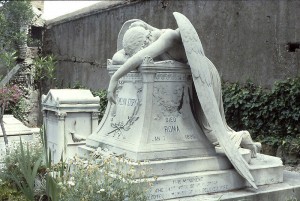 Today is the Third Sunday of Advent; in the tradition of the church it is known as Gaudete Sunday, Latin for “Rejoicing Sunday” so named because of the medieval introit to the Mass, “Gaudete in Domino semper: iterum dico, gaudete”, St. Paul’s words in the Letter to the Philippians, “Rejoice in the Lord always: again I say rejoice.” (4:4) (A reading from that very portion of Paul’s letter is this year’s epistle lesson for the Eucharist today; we will hear and consider those words at church this morning.)
Today is the Third Sunday of Advent; in the tradition of the church it is known as Gaudete Sunday, Latin for “Rejoicing Sunday” so named because of the medieval introit to the Mass, “Gaudete in Domino semper: iterum dico, gaudete”, St. Paul’s words in the Letter to the Philippians, “Rejoice in the Lord always: again I say rejoice.” (4:4) (A reading from that very portion of Paul’s letter is this year’s epistle lesson for the Eucharist today; we will hear and consider those words at church this morning.) This is the part of the Maundy Thursday – Good Friday story that breaks my heart! I so identify with Peter; he’s such a bumbling fool on so many occasions and Jesus just keeps on holding him close, knowing that eventually he will pull through. I know that I would have done no better than Peter in those dark hours of Thursday night. I might not even have done as well as he did; I’m not sure I’d have had the courage to follow Jesus into the high priest’s courtyard!
This is the part of the Maundy Thursday – Good Friday story that breaks my heart! I so identify with Peter; he’s such a bumbling fool on so many occasions and Jesus just keeps on holding him close, knowing that eventually he will pull through. I know that I would have done no better than Peter in those dark hours of Thursday night. I might not even have done as well as he did; I’m not sure I’d have had the courage to follow Jesus into the high priest’s courtyard! In ten days we will begin our celebration of his birth, but the Daily Office lectionary today has us consider his last meal on the night before his death . . . .
In ten days we will begin our celebration of his birth, but the Daily Office lectionary today has us consider his last meal on the night before his death . . . . 



